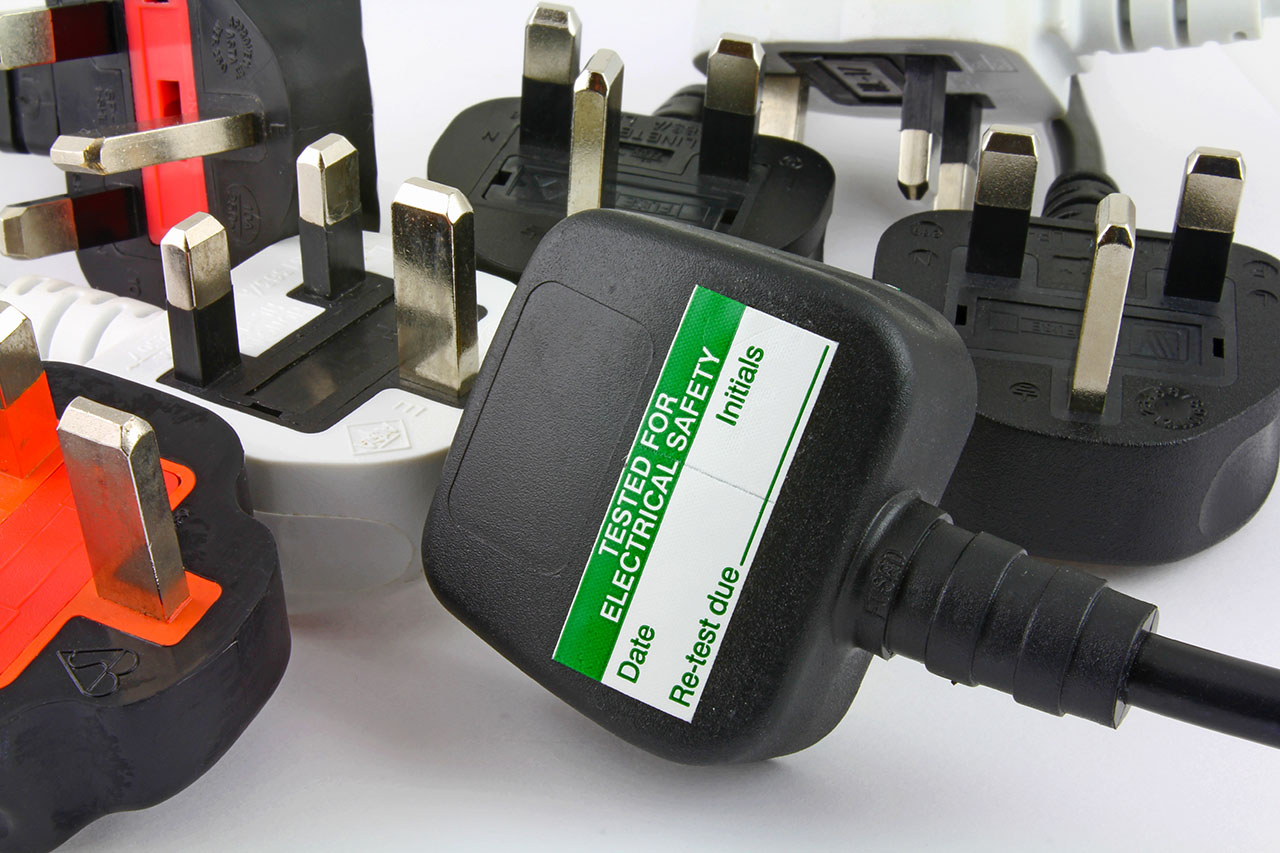Portable Appliance Testing
- Home
- Our Services
- Portable Appliance Testing
Portable Appliance Testing (also referred to as the ‘Inspection and Testing of In-Service Electrical equipment’) was introduced to enable companies and organisations to comply with the Electricity at Work (EAW) Regulations 1989.
Over 2,500 people are killed or injured as a result of electrical fires each year. Poor electrical installations and faulty electrical appliances can lead to fires which may also cause death or injury to others therefore PAT Testing or Portable Appliance Testing is an important part of any health & safety policy.
Why Carry Out Portable Appliance Testing?
The purpose of the EAW Regulations is to prevent death or personal injury to any person from electrical causes and, as such, there are three main requirements stated as:
- “To prevent danger”, which is defined as the ‘risk of injury’
- “To prevent injury”, which is defined in terms of certain classes of potential harm to persons
- “Not to give rise to danger”
The requirements of the Regulations require that: “so far as is reasonably practicable, systems and equipment shall at all times be of such construction so as to prevent danger” and “so far as is reasonably practical, all systems and equipment shall be maintained so as to prevent danger”.
The Regulations qualify these as: ‘absolute’ – precautions must be taken regardless of time, cost or difficulty to remove the element of risk; ‘reasonably practical’ – precautions must be taken which are feasible in terms of time, capabilities and economics; and ‘reasonably foreseeable’ precautions must be taken against circumstances, situations and usage in which it would be reasonable to expect hazards and risk.
The Health and Safety at Work Act 1974 puts the duty of care upon “duty holders” which apply to both the employer and the employee to ensure the safety of all persons using the premises. Provisions & Use Of Work Equipment Regulations 1998 states that every employer shall ensure that “the result of an inspection made under this regulation is recorded and kept until the next inspection under these regulations is recorded.” The combination of these regulations apply to all electrical equipment used in, or associated with, places of work.
The Institution of Engineering and Technology (IET) Code of Practice gives guidance on the various equipment types, which includes portable appliance, transportable equipment (moveable), hand held equipment, stationary equipment or IT equipment.
Electrical testing of portable equipment will involve earth bond continuity tests, insulation resistance testing and functional checks and different types of equipment are put into ‘classes’:- e.g. Class 1
Why Choose McIntyre Compliance Services
McIntyre Compliance Services will prepare a programme of Portable Appliance Testing to meet the recommended guidelines for frequency of testing as issued by the IET and the HSE.
We will provide fully trained PAT Testing Engineers who are friendly and well presented, offering minimal disruption to the day to day running of your organisation during testing.


